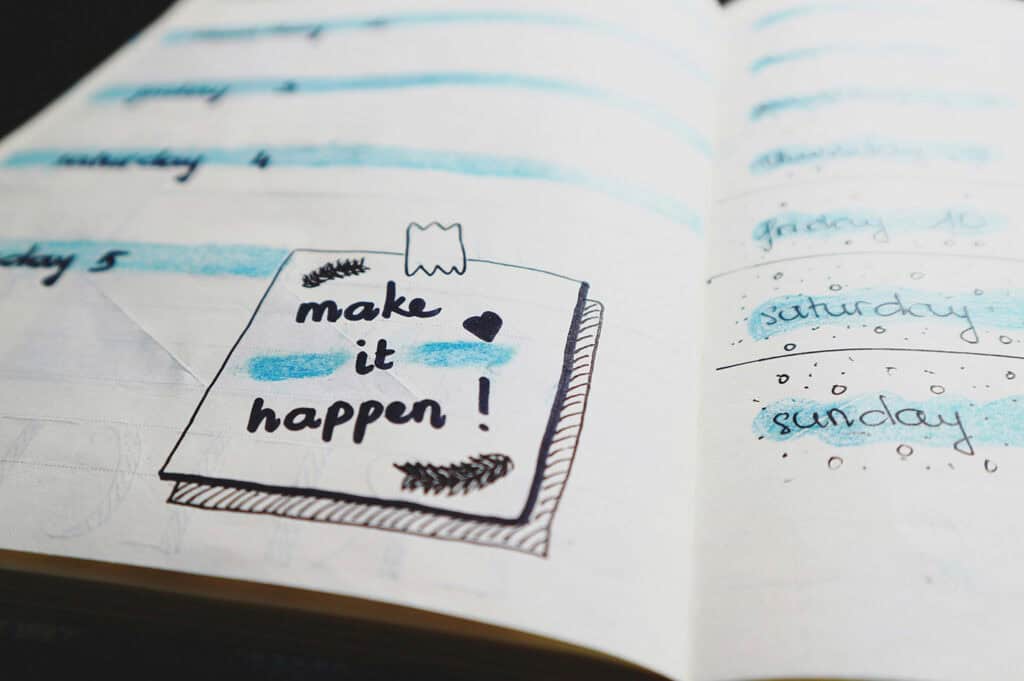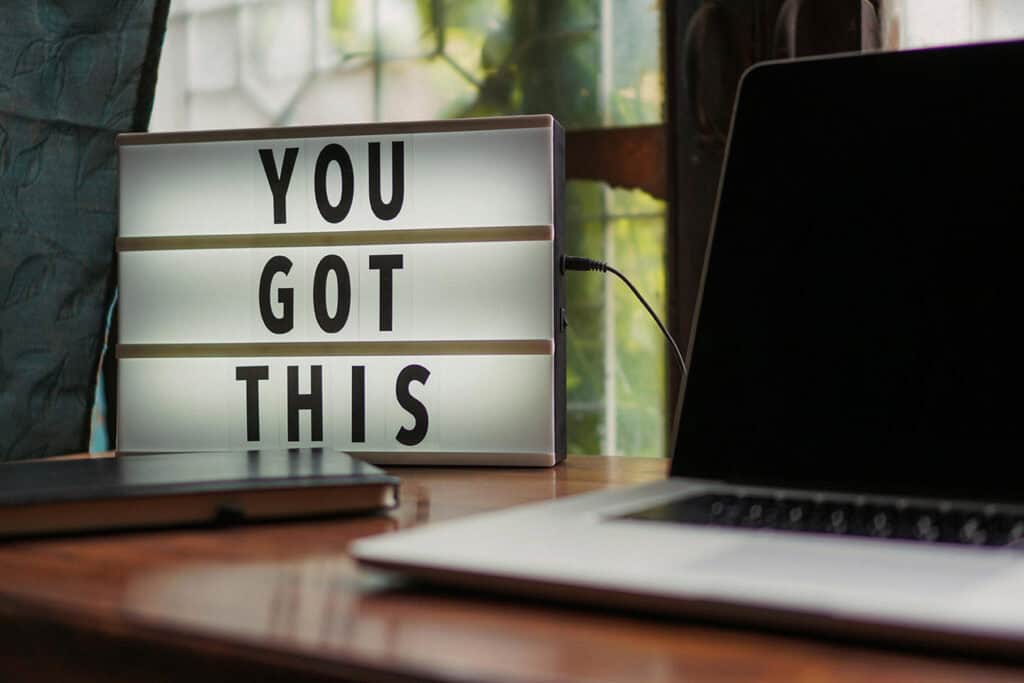Are you tired of test-day anxiety stealing your confidence—even after all your hard work? You’re not alone. Many students face self-doubt and mental blocks just when they need to shine the most.
But here’s the good news: you already have what it takes to succeed—you just need the right mindset and strategy to unlock it. We’ve helped countless learners transform their test-day experience, and this article will guide you through a simple, powerful, personal growth plan.
In this article, we explored 10 practical tips to help you such as:
- Boost self-belief
- Stay calm under pressure
- Perform at your best
Read on to discover how small shifts in your habits and thinking can lead to big wins on test day—and beyond.
- 10 Tips to Stay Positive About Yourself and Your Abilities on Test Day
- 1. Prepare Like a Pro to Build Confidence
- 2. Reframe Your Thoughts with Positive Self-Talk
- 3. Focus on What You Can Control
- 4. Create a Morning Routine That Energizes You
- 5. Practice Mindfulness and Breathing Techniques
- 6. Remind Yourself of Past Wins and Strengths
- 7. Accept Nervousness Without Letting It Control You
- 8. Visualize Success on Test Day
- 9. Keep Perspective: One Test Doesn’t Define You
- 10. Use the Right Images, Templates, and Visuals for Extra Motivation
- How to Stay Positive About Yourself and Your Abilities on Test Day: A Recap

10 Tips to Stay Positive About Yourself and Your Abilities on Test Day
1. Prepare Like a Pro to Build Confidence

The best way to stay calm under pressure is by knowing you’ve done the work. Preparation builds confidence because it replaces fear with facts. When you prepare strategically, you create a sense of control over the outcome.
- Create a realistic, well-organized study schedule.
- Use active recall and spaced repetition techniques.
- Take practice exams under test-like conditions.
- Review weak areas instead of only what you enjoy.
- Study smarter, not longer: focus on high-yield content.
If you’ve worked hard, you deserve to feel confident. Don’t waste time comparing yourself to others. You’ve earned your place, and your preparation reflects that. Each small success proves you’re ready.
See also List of Insecurities
2. Reframe Your Thoughts with Positive Self-Talk

Your mindset becomes your mental environment. If it’s filled with doubt, your ability to focus drops. Positive self-talk re-centers your thoughts and gives you the emotional fuel to stay motivated during high-pressure moments.
- Instead of “I’m going to fail,” say “I’ve done the work. I’m ready.”
- Use affirmations like “I trust myself,” “I stay calm under pressure,” or “I’ve got this.”
- Visualize yourself succeeding: walking into the room calm, completing the test with clarity.
Replace negative self talk and negative thoughts with confidence-boosting language. These words have power. The way you speak to yourself influences how you perform, especially in high-stakes moments like a test.
3. Focus on What You Can Control

Trying to control everything increases anxiety. The key to positivity is narrowing your focus to what’s truly within your power — like your mindset, reactions, and effort.
- You can’t control the exact questions — but you can control your reaction.
- You can’t change the past — but you can do your best today.
- You can control your breath, your posture, and your mindset.
You’ll likely recognize situations where anxiety builds quickly. In those moments, shift your focus back to the basics — breathing, positive thinking, and staying grounded in the present.
4. Create a Morning Routine That Energizes You

How you begin your day matters. A calm, confident 30-minute morning routine helps reset your brain from worry to readiness. Starting the day right boosts mood, energy, and emotional stability.
- Wake up early to avoid rushing.
- Eat a balanced breakfast (avoid heavy or sugary foods).
- Move your body — even 5 minutes of stretching or a walk can reduce anxiety.
- Listen to calming or motivational music.
- Avoid last-minute cramming, which can spike stress.
You don’t have to do several things — just choose what helps you feel centered. Whether it’s music, exercise, or silence, starting strong gives you control before the pressure builds.
5. Practice Mindfulness and Breathing Techniques

Mindfulness practices train your brain to slow down and stay present. These techniques can help manage test anxiety and improve mental clarity when pressure rises.
- Try the 4-7-8 breathing method: inhale for 4 seconds, hold for 7, exhale for 8.
- Do a body scan meditation to release physical tension.
- Focus on your senses (e.g., what you see, hear, or feel) to stay present.
- Repeat a calming mantra like “I am focused and capable.”
When you start to feel overwhelmed, these methods help you avoid spiraling into panic. You begin to realize that you can handle it — calmly, steadily, and with grace.
6. Remind Yourself of Past Wins and Strengths

Confidence isn’t built overnight — it’s built from your own story. Thinking about your past successes reminds you that you’ve handled pressure before and will do it again.
- Make a list of past successes — academic or otherwise.
- Think of moments you proved your ability under pressure.
- Visualize a time you thought you’d fail, but succeeded.
For instance, maybe you thought you’d bomb a final, but you passed with flying colors. Moments like these strengthen self esteem and help you remember who you are under pressure.
See also How to Be More Confident and Attractive
7. Accept Nervousness Without Letting It Control You

Anxiety doesn’t mean you’re unprepared — it means you care. Accepting nerves helps them pass more easily and keeps you in control of your focus.
- Label the feeling: “I’m feeling anxious, and that’s okay.”
- Reframe anxiety as excitement — your body getting ready to perform.
- Don’t aim for zero stress — aim for focused energy.
Every person feels pressure sometimes — it’s part of life. Learning to manage stress helps you move through discomfort without letting it block your performance or cloud your goals.
8. Visualize Success on Test Day

Visualization lets you mentally rehearse success. It programs your brain to recognize and gain confidence and helps you stay steady when real challenges arise.
- Close your eyes and imagine walking into the exam room confidently.
- Visualize yourself answering questions clearly and calmly.
- Picture finishing the test, smiling, and feeling proud.
This small mental practice does more than motivate — it helps your brain locate answers, maintain a positive attitude, and begin the test feeling centered and clear.
9. Keep Perspective: One Test Doesn’t Define You

It’s easy to feel like a test defines your future — but real success is about growth, not perfection. Perspective helps you stay grounded.
- You are more than a grade or a number.
- Tests measure a snapshot — not your full intelligence or potential.
- Many paths lead to success, even if this one isn’t perfect.
Don’t let a single mistake or test score define your journey. You are part of a bigger world, full of opportunities that don’t rely solely on academic outcomes.
10. Use the Right Images, Templates, and Visuals for Extra Motivation

Surrounding yourself with visuals can give your brain emotional cues to stay focused. A personalized template or digital vision board can make your motivation visible.
- Add motivational quotes or affirmations.
- Include pictures of your dream school, career, or achievement.
- Keep it somewhere you can access easily, like your phone or study desk.
- Use calming, inspiring colors or personal photos that make you feel strong.
Spend time curating visuals that inspire you, rather than wasting energy on comparison. These reminders can turn a rough moment into one of renewed focus and strength.
See also Exercises to Build Self-Confidence
How to Stay Positive About Yourself and Your Abilities on Test Day: A Recap
Staying positive on test day isn’t just a mindset — it’s a skill. With the right strategies, you can walk into any exam feeling calm, capable, and confident. Trust your preparation, talk to yourself kindly, and remember: your abilities are real, your goals are valid, and you are already enough — no matter the outcome.


